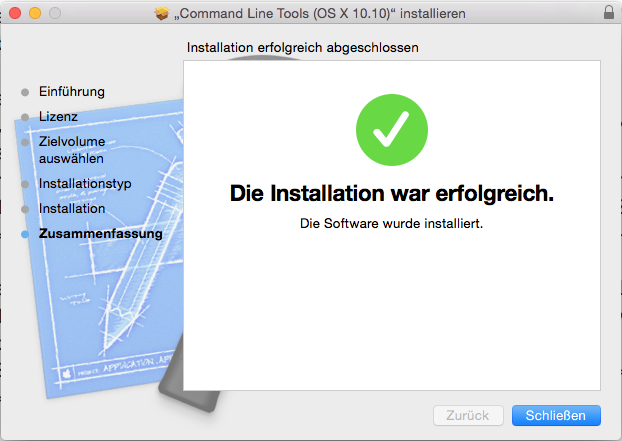

- #Macports yosemite install
- #Macports yosemite update
- #Macports yosemite upgrade
- #Macports yosemite full
It's fairly quick and easy to do, but if you ask me, writing your own script to upgrade packages has a nasty smell to it.
#Macports yosemite update
They still don't have upgrade functionality, meaning that if you want to update your packages, you have to write your own script to do so. However, problems with Brew-Cask exist, and may deter you. One nice thing about Brew-Cask is that is has the brew cask zap command, which allows you to wipe all traces of a program from your computer (if supported by the program). If you want to use it as a true package manager, this extension is necessary. They are kept separate because of their differing philosophies, but they still play well together. It is still managed by the same people, and is still autonomous from homebrew, but it is now "a part of" homebrew. Brew cask was, until recently, a completely separate project, with a different set of rules.
#Macports yosemite install
Vanilla homebrew could only install certain kinds of packages - CLI, open-source, with various rules surrounding who could publish a formula. It needs to be cleaned up from time to time, for which the command brew cleanup exists.īrew cask is an extension to homebrew, now included by default. Similar to apt-get, homebrew uses brew update and brew upgrade to update your packages. This is nice if you're using software that depends on your CL packages, since you can set it up to automatically use the most recent. This folder is added to the path when you install homebrew. It installs the software into the /usr/local/Cellar folder, then symlinks the installed package into /usr/local/opt. Homebrew doesn't require sudo, which is kind of nice. Run this: /usr/bin/ruby -e "$(curl -fsSL )" It was really easy to script, and I even made a daemon and some other scripts to update it for me. As such, I can't speak much towards the differences between the two, but I can tell you about my experience with homebrew. I'm a homebrew user, and currently in college in a 4-year software engineering program. The OS X's files may also be modified, but you must do so while booted into an alternate system (such as recovery mode). Everything else – /home, /usr/local, /opt, you name it – is under your control.

"OS X's own files and directories" roughly refers to /System, /bin, and /sbin, as well as the original items in /Applications, /usr, and /private (A.K.A. The kernel will refuse the modify files on the boot filesystem that have this flag set, even by root-owned processes. Like the BSD's, OS X utilizes filesystem flags (viewable with ls -lO), and OS X's own files and directories are now given the restricted flag. In addition to these, it also prevents the remapping of system processes' memory, modification of boot parameters, and more.Īs far as the filesystem protections. SIP is a collection of various protections, of which the filesystem ones are the most obvious. I am somewhat confused regarding the exact file system limitations that SIP imposes. Homebrew's packages are generally one or two iterations behind MacPorts's, due to their dependence on OS X's shipped libraries. Homebrew also enjoys a more active user community and its packages (called formulas) are updated quite often.
#Macports yosemite full
MacPorts provides full support for using your home directory, for example. If you prefer not to use root privileges when installing packages, you should not be using a systemwide directory. Moreover, every user-maintainable systemwide software directory in OS X (/Applications, /Library, etcetera) are root-owned. In every OS that has /usr/local, it is root-owned. In fact, not requiring root privileges to modify a systemwide software directory is a major deviation from traditional best practices. It is a common misconception that this is an advantage of Homebrew. It also installs libraries in the user space (thus, you don't need to use "sudo" to install things). If this is something that users struggle with, then it is simply due to a misconfigured shell environment (although this is one advantage to Homebrew in that it does not require the configuration of one's PATH, MANPATH, etcetera). I don't know of any package manager that will overwrite OS X's shipped packages, nor any that will affect OS X's resolution of its shipped dependancies.


 0 kommentar(er)
0 kommentar(er)
